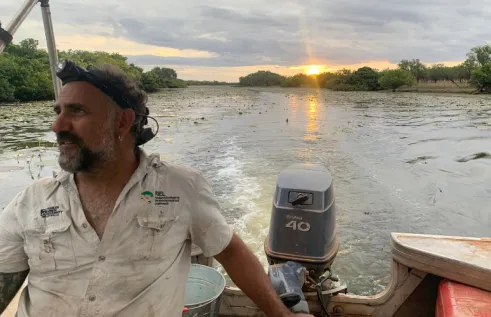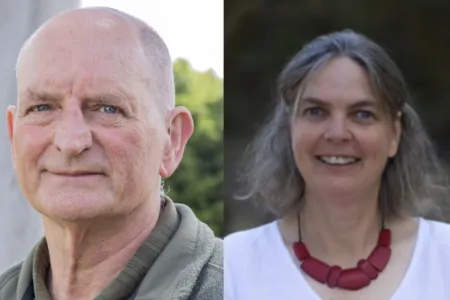RIEL seminar series
Why Darwin is the air pollution capital of Australia
| Presenter | Prof Fay Johnston and Prof David Bowman | |
|---|---|---|
| Date/Time |
to
|
|
| Contact person | E: RIEL.outreach@cdu.edu.au | |
| Location |
CDU Casuarina campus, Yellow Building 1.2.48, Savanna Room and online via Zoom (see below for Zoom link) All times are ACST |
|
| Open to | Public | |
Darwin has the worst air quality of any capital city in Australia. This pollution has demonstrable public health harms, including contributing to the burden of chronic diseases and premature deaths in the region.
The primary source of the pollution is smoke from regional bushfires. Recent programs to reduce greenhouse gas emissions changed seasonal patterns of area burned since around 2012, with an observable trend towards increased pollution in the early dry season.
In the seminar ‘Why Darwin is the air pollution capital of Australia: Unpacking human health and savanna fire management trade-offs’, two speakers will discuss issues for consideration for improving Darwin’s air quality to benefit human and environmental health.
Prof Fay Johnston is the Director of the Centre for Safe Air, which is a National Health and Medical Research Council (NHMRC) Centre of Research Excellence; holds a research chair in Environmental Health at the Menzies Institute for Medical Research; and is a Senior Specialist Medical Advisor in the Tasmanian Department of Health.
Prof David Bowman is an Australian Research Council Laureate Fellow and the Director of the transdisciplinary Fire Centre in the School of Natural Sciences at the University of Tasmania, where he holds a research chair in Pyrogeography and Fire Science.
Related Events

Trophic dynamics of free-flowing tropical rivers
Colton Perna's PhD research explores how river flows and flooding shape freshwater fish communities in tropical rivers, using fatty acids to track how hydrology influences food webs and nutritional pathways. His findings highlight the critical importance of river flow and floodplain connectivity in sustaining productive aquatic ecosystems.
Read more about Trophic dynamics of free-flowing tropical rivers
Thesis Talk
Thesis Talk is a facilitated academic discussion for HDR candidates to connect to and through ideas with research peers. Join the monthly online session to explore different topics, theories and practicalities. Talk through the nitty-gritty of research practices and reflect on your work.
Read more about Thesis Talk
Writing a literature review
In this workshop we will answer the questions “What is a literature review?” and “What is the purpose of a literature review?”. We will also consider steps for writing a literature review and explore tips to strengthen your research strategy and critical voice.
Read more about Writing a literature review
